Car Review; Mercedes-Benz E350 All-Terrain
No stone unturned, no road not taken in Mercedes’ quest for sales
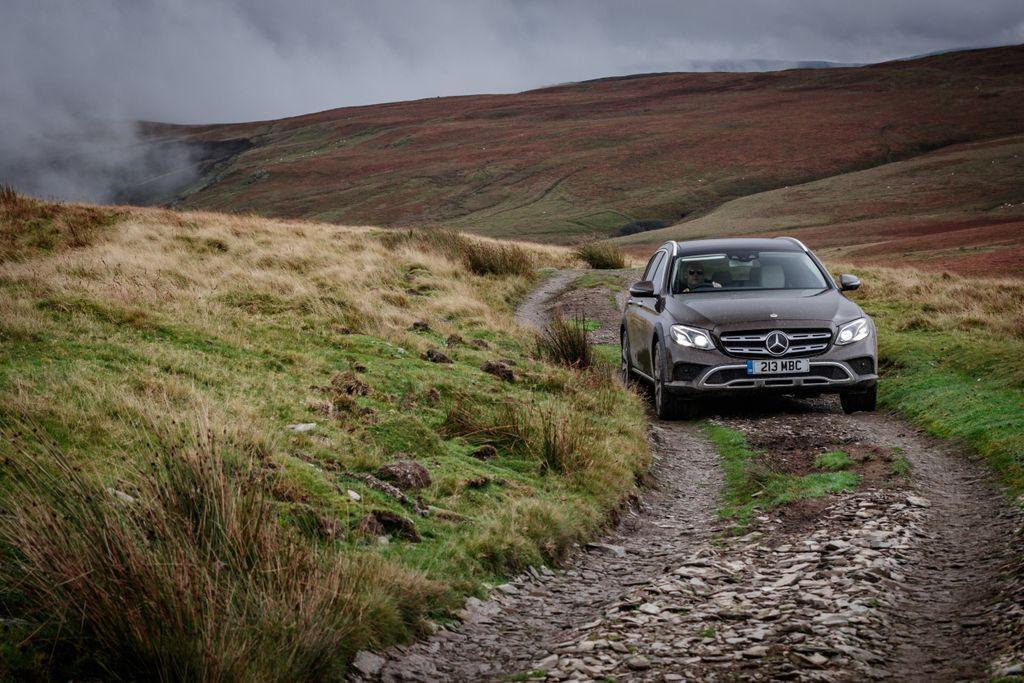
Here’s a stat for you to ponder, as relevant to the debate about Brexit as anything: last year Mercedes-Benz sold 179,000 cars in the UK. That was a record, and placed the marque in first place among the “premium” badges. As it happens, Audi and BMW, both on about 175,000, weren’t so far behind. So that’s well over a half-million passenger cars retailed to British customers. If they made, say, £1,000 on each on the average that’d be worth half a billion in profit between VW Group, Daimler AG and BMW. I’ll leave it there.
You need look no further for the cause of this long-term success than the latest variation on the Mercedes-Benz E-Class theme, still the benchmark for an executive car. The E-Class All-Terrain Estate is a one-model range that features a raised ride height, some tastefully applied plastic cladding around the bodywork, some other styling touches and an all-wheel drive system that adds a new dimension to the car’s already formidable complement of talents.
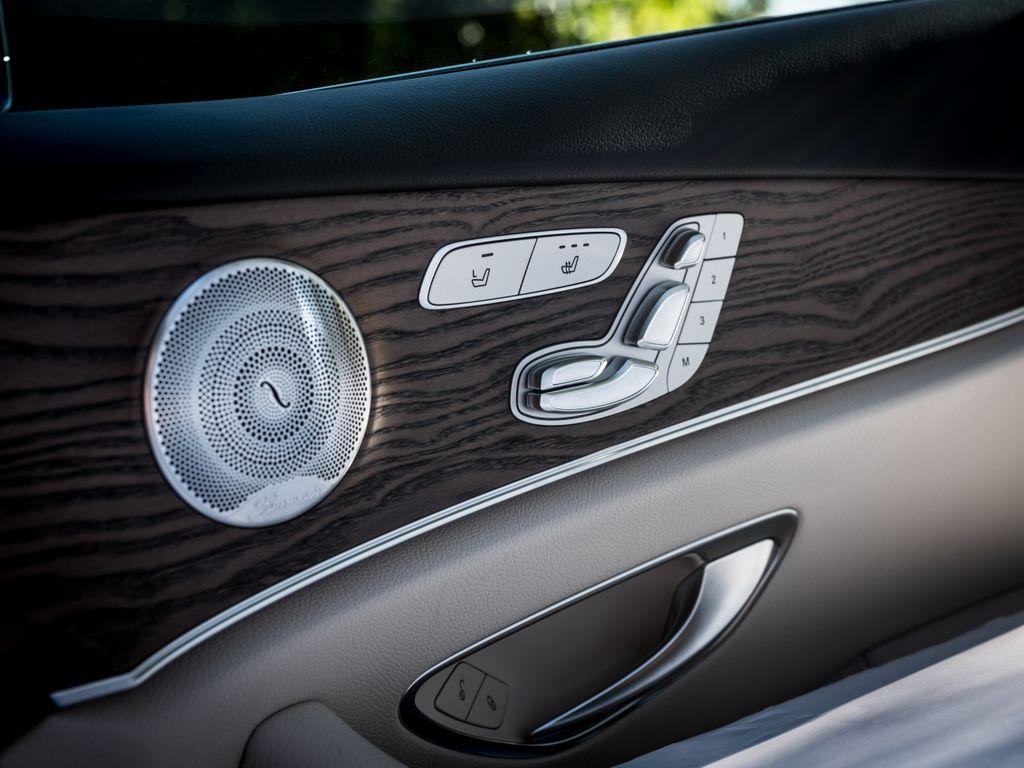
In the limited use I was able to make of it, it did surprisingly well, on mildly off-road use and in the snow. Like the similar models from Audi (A6 estate), Volvo (V90), Subaru (Levorg), it delivers let’s say 60 or 70 per cent of the kind of all-out off-road agility you’d get from a full-on SUV, but with only the slightest loss of normal driving characteristics, which demand a lower centre of gravity for stability. Always. Even the smartest of the SUV engineers – and even with all their achievements in such automotive superlatives as the Range Rover, Bentley Bentayga and, I dare say, the forthcoming Rolls-Royce Cullinan pluto-SUV – can’t abolish the laws of physics. Big, boxy, hugely heavy SUVs are always going to mean a compromise for the enthusiastic driver. A slightly taller than usual estate car makes a lot more sense, and has a welcome touch of modesty about it.
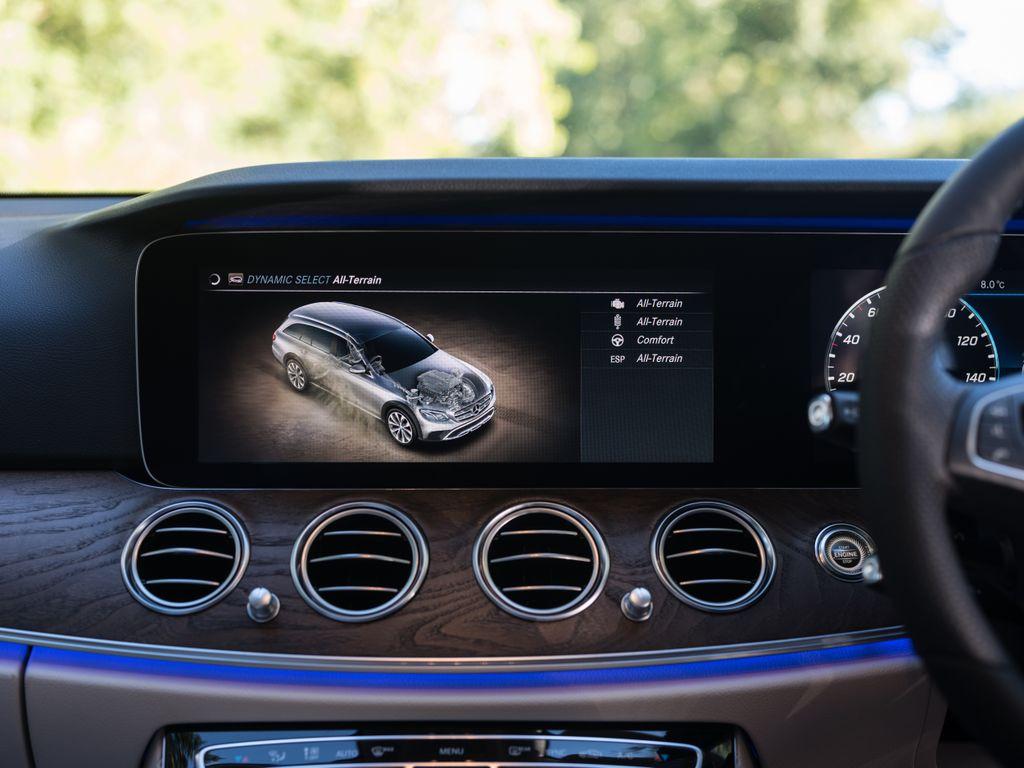
The spec
Mercedes-Benz E 350d All-Terrain
Price: £61,470 (as tested; range starts at £38,905)
Engine capacity: 2.2-litre diesel; 8-sp auto
Power output (hp @ rpm): 210@3,750
Top speed (mph): 134
0-62 mph (seconds): 6.6
Fuel economy (mpg): 58.9
CO2 emissions (g/km): 127
BIK rate: 25%
Not too much, mind. There’s a noticeably bolder grille and butch sort of “face” than on the usual exec E-Classes, and it looks surprisingly distinctive, given the fairly modest changes (none indeed to the metalwork). The extra-large wheels also have fatter tyres fitted to them to cope with rough stones and shards of granite (say), and that also has the benefit of lending the E-Class an even softer drive on-road, and a more relaxing drive. Mercedes-Benz has learned from, caught up and now surpassed Audi for cabin quality, and demonstrably so. It is a serene place, with attention to detail and outstanding qualities all around you, from the soft leatherwork to the light-stained wood on the dash. Two huge (12.4-inch) screens present the driver, and passengers for that matter, with the usual information, and the car is fitted with most of the high-tech driver aids you’d expect (though it seems to me that Audi has the slight edge here, on “autonomous” features).
Perfectly complementing the Mercedes’ character is the V6 3.5 litre twin-turbo diesel engine, torquey enough for off-roading grunt and powerful enough to deliver smooth progress via the seamless automatic gearbox. So, yes, it is good, and, again, you can see why this sort of engineering excellence builds commercial success. I hope I don’t sound too sycophantic, it just happens to be true in this case (and I’d be the first to add that Mercedes-Benz, with some rusty and self-immolating E-Classes in the past, has been lucky to keep its reputation for quality).
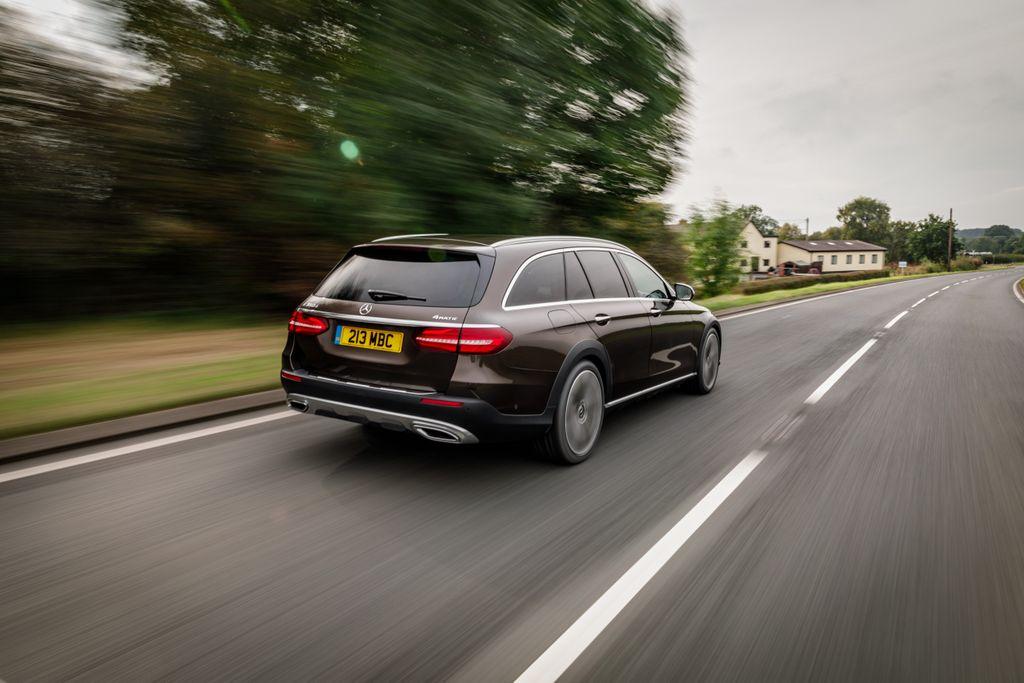
The V6 is the only engine option for the terrain, in what is their sole entrant in a niche market for 4x4 estates. Mercedes-Benz is more than ever determined to have “representation” in just about every market sector these days, from compact SUVs to armoured bespoke limousines to pick-up trucks and postie’s vans. This headlong expansion – which has helped those sales stay high – hasn’t trashed the brand yet, but there are, inevitably, risks.
Not too many with this one though, which is much closer to the marque’s native territory, with the technical spec to match its ambition. Air suspension, for example, which can help the car get itself into the right kind of setting for its environment – and provide a superb ride on the road, which is after all, where this car will spend nearly all of its time in any case.
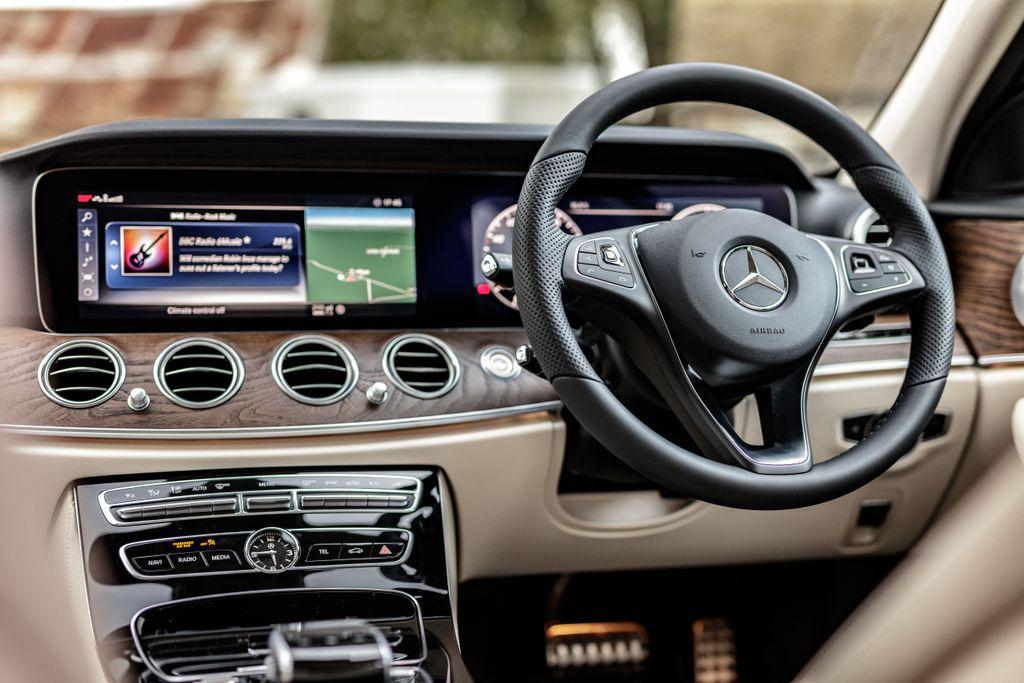
All this, by the way, for a £2,000 premium over the equivalent rear-wheel drive E-Class estate, and slightly worse mpg and Co2 emissions. It’s safe too, of course, and not just because its “primary safety” – handling and performance – is, as explained, superior to most SUVs.
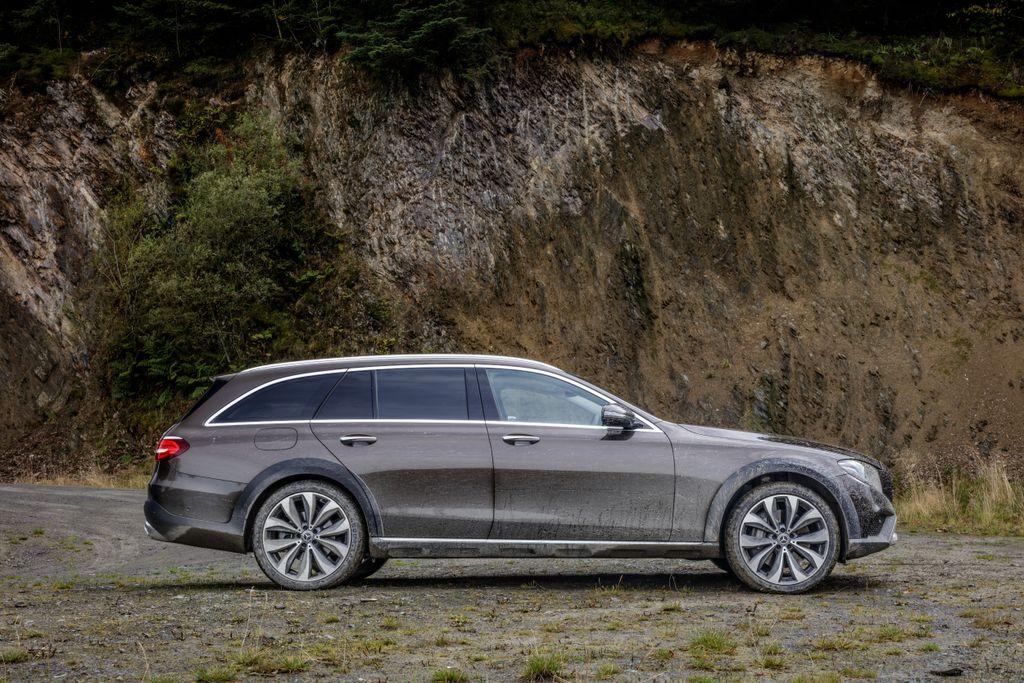
With its deep lustrous paintwork and bold grille, this Mercedes is a car that makes an understated sort of statement, and can even be regarded as a value-for-money real-world rival to a Range Rover, for those who don’t want (or need) to shout “country set” to the world. It’s what the posh people really drive. After Brexit, with a weaker pound and even tariffs (shudder), it’s going to cost them a fair bit more. You can see why some of them are so keen on Britain staying in the European Union.
Join our commenting forum
Join thought-provoking conversations, follow other Independent readers and see their replies
Comments
Bookmark popover
Removed from bookmarks